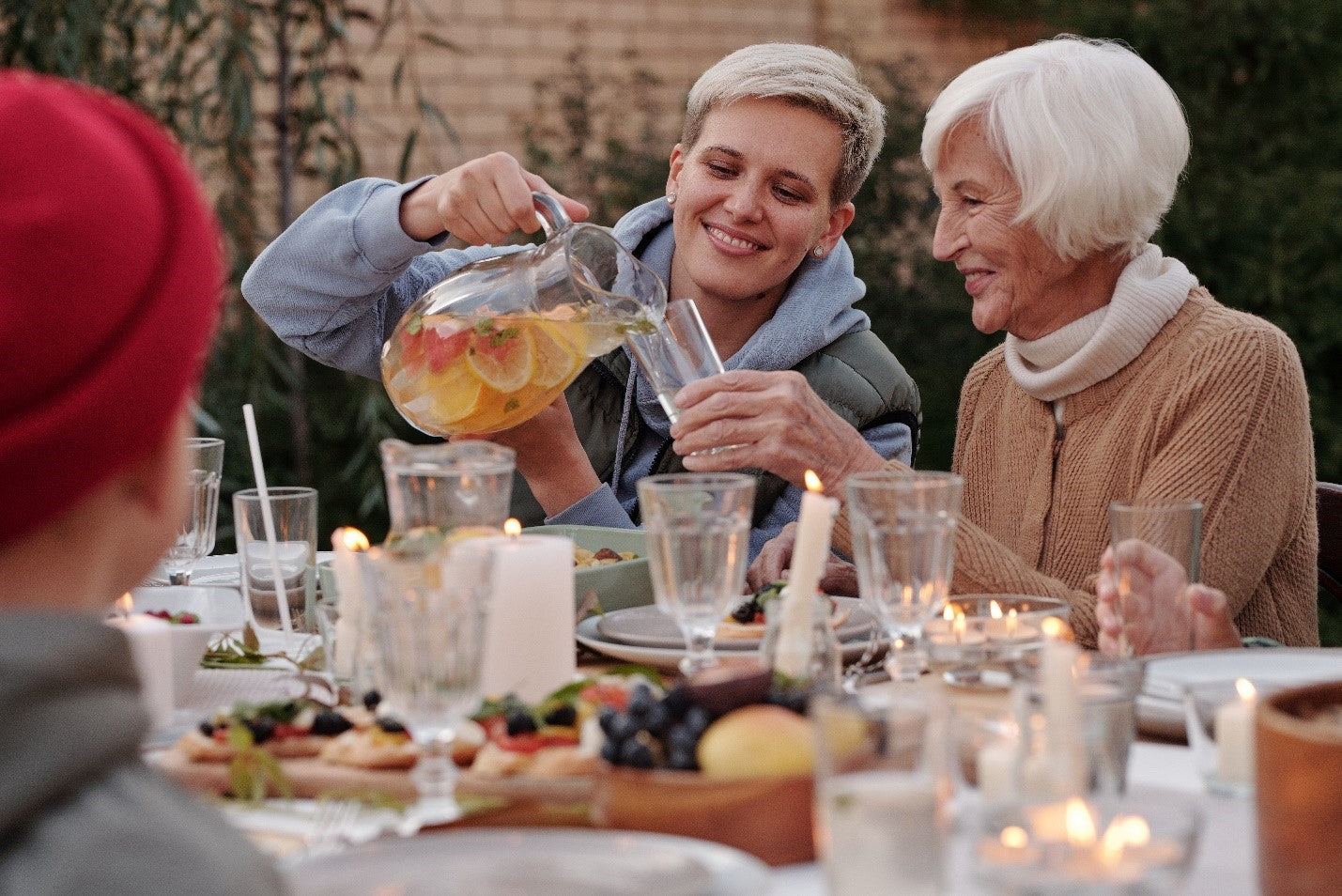
Caring For a Senior with Food Allergies
For many people, food allergies are conditions you either live with since childhood or grow out of in adulthood. However, evidence suggests that food allergies may come and go throughout your lifetime. Older adults, in fact, have been found to be susceptible to late-onset food allergies. Because of their more vulnerable immune systems, studies on NCB states that at least 10% of the global senior population experiences newly developed food allergies. In some cases, food allergies acquired among seniors can result in severe symptoms. As such, if you are caring for an older adult, it’s important to consider this in your care plan. Here are some things to keep in mind:
Not all allergic reactions are the same
When people think of food allergies they often think of hives and difficulty breathing. However, these are just a few examples of allergic reactions. Like we discussed in our post ‘What Are Food Allergies?’, some may be more subtle like itchy eyes, while others can be more serious like loss of consciousness. In seniors, this can be harder to notice because of pre-existing conditions that may mimic similar reactions. What’s more, because allergic reactions can occur anywhere between a couple of minutes to a few hours after initial exposure, seniors themselves may get confused about their symptoms. Therefore, it’s important to learn about different allergic reactions and to note how the senior you’re caring for specifically reacts. This will help you better monitor their well-being, especially if you’re not able to confirm what they ingested.
Older adults may have different allergens
In the United States, doctors consider the “Big-8” food allergens. These include peanuts, milk, shellfish, and sesame. According to expert reports on U.S. News, these foods are among the most commonly documented allergens in patients of all ages. That said, there are some allergens that are more prevalent in older adults. Food like fish (salmon, tuna, and halibut), nuts, soy, and fruits and vegetables are typical allergens for those with late-onset food allergies. Therefore, learn the different allergens your senior may be sensitive to. If they suffer from memory issues, then this is even more important for you to track. Aside from learning about food to avoid, do also try to learn what you can swap. Older adults, especially those who could previously eat certain allergens, may feel frustrated. By providing allergen-free treats like Baked Cravings brownies or cupcakes, they’ll feel satisfied and less compelled to eat something off-limits.
Dietitians can prescribe personalized diets
Seniors are much more sensitive to diet. Lackluster diet and nutrition may cause digestion issues, malnutrition, or low body weight. Some studies even say that 71% of deaths may be caused by poor diet. To be absolutely certain that an older adult’s diet is safe and nutritious, carers can also consult with a professional to create a better meal plan. If a senior doesn’t currently have a dietitian in their medical team, then KelseyCare explains that Medicare Part B and Medicare Advantage includes coverage for dietitian visits. With these licensed experts’ guidance, you can create a diet plan that considers all food allergies and current medical history. This includes identifying food that won’t exacerbate existing health issues or counteract with prescribed medications. This will eliminate the guesswork and make diet planning safer.
First aid for allergic reactions is essential
Even if your senior has only exhibited minor allergic reactions, it pays to know the right first aid. Healthline outlines how some of the basic, yet critical, first aid you must know includes CPR and how to administer emergency epinephrine. The former is a life-saving technique that may help relieve breathing. Although CPR may be done without formal training, there are free training courses nationwide. Meanwhile, emergency epinephrine is an auto-injector (also called an EpiPen) that releases a single dose of medication. These devices require a doctor’s prescription. Thankfully, the necessary doctor’s visit and the medication itself may be covered by an older adult’s Medicare Part A and Medicare Advantage. On top of these, you’ll also want to keep over-the-counter (OTC) antihistamines handy. With these medications and training, your senior will feel assured that help is available.
Food allergies, especially those developed later in life, do require special consideration and adjustments. However, rather than being a difficult transition, with a positive mindset and correct preparation, your beloved senior can enjoy their golden years full of delicious food and free of pesky allergens. For more information do check out our other articles on Baked Cravings.
